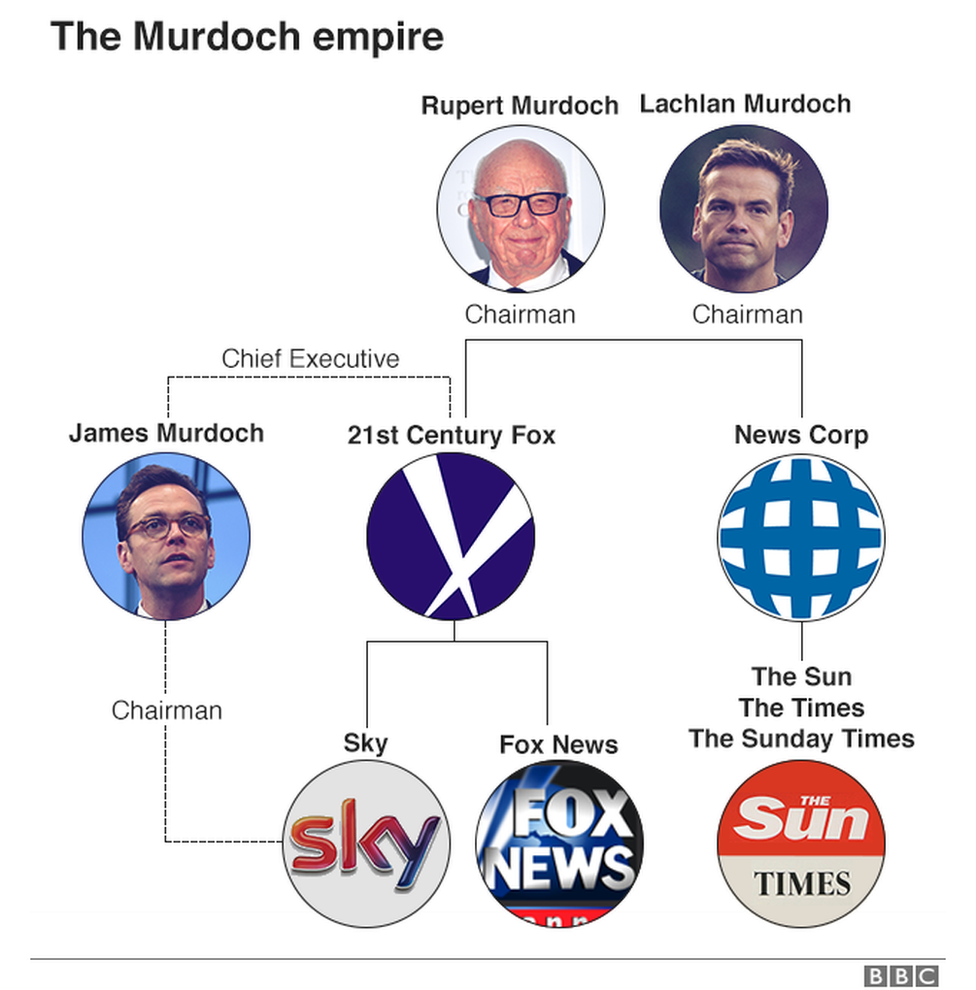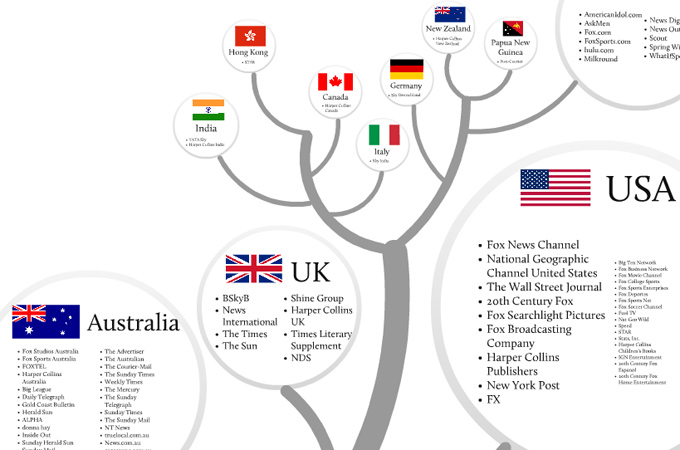
:no_upscale()/cdn.vox-cdn.com/uploads/chorus_asset/file/11545923/VRG_ILLO_2671_DF_16x9_02.png)

:no_upscale()/cdn.vox-cdn.com/uploads/chorus_asset/file/11545923/VRG_ILLO_2671_DF_16x9_02.png)
Murdoch’s media empire includes Fox News, Fox Sports, the Fox Network, The Wall Street Journal, and HarperCollins. In March 2019, Murdoch sold the majority of 21st Century Fox’s entertainment assets to the Walt Disney Company for $71.3 billion.

David Hesmondhalgh
He critically analyse the relationship between media work and the media industry – ‘ there must be serious concerns about the extent to which this business-driven, economic agenda is compatible with the quality of working life and of human well-being in the creative industries.‘
Rupert Murdoch

Definitions



David Hesmondhalgh
The Cultural Industries: A book by Hesmondhalgh
Rupert Murdoch: Media Empire





Media and Society
2. Media Regulation
3. Media Power and Control
4. The Media informing/coercing policy and decision making
5. Media working practices (Promotion, success & financial reward and journalistic practices)
KEY WORDS
Dave Hesmondhalgh
David Hesmondhalgh is among a range of academics who critically analyse the relationship between media work and the media industry. In his seminal book, The Culture Industries
A critical reflection that highlights the ‘myth-making’ process surrounding the potential digital future for young creatives, setting up a counter-weight against the desire of so many young people who are perhaps too easily seduced to pursue a career in the creative industries. (Hesmondhalgh)
Rupert Murdoch


Media regulation
An example is Rupert Murdoch trying to own all the news industries in the UK. However, according to UK law Rupert Murdoch was only able to own 39% of sky. This can be linked to Noam Chomsky and factoring consent in relation to getting Tony Blair elected for Prime Minister



Media concentration / Conglomerates / Globalisation (in terms of media ownership)- A media conglomerate, media group, or media institution is a company that owns numerous companies involved in mass media enterprises, such as television, radio, publishing, motion pictures, theme parks, or the Internet.
Vertical Integration- The combination in one firm of two or more stages of production normally operated by separate firms.
Horizontal Integration- is the process of a company increasing production of goods or services at the same part of the supply chain
Gatekeepers– Gatekeeping is the process through which information is filtered for dissemination, whether for publication, broadcasting, the Internet, or some other mode of communication.
Regulation- Rules in media. The principal targets of media regulation are the press, radio and television, but may also include film
Deregulation- Media deregulation refers to the process of removing or loosening government restrictions on the ownership of media outlets.
Free market- The free market is an economic system based on supply and demand with little or no government control.
Monopolies- A monopoly refers to when a company and its product offerings dominate a sector or industry.
Mergers- a combination of two things, especially companies, into one.
David Hesmondhalgh– is among a range of academics who critically analyse the relationship between media work and the media industry. Wrote a book called The Cultural Industries which states ‘ the distinctive organisational form of the cultural industries has considerable implications for the conditions under which symbolic creativity is carried out’ In other words there must be serious concerns about the extent to which this business-driven, economic agenda is compatible with the quality of working life and of human well-being in the creative industries.‘
his book “The Culture industries” (2019) suggests:
“the distinctive organisational form of the cultural industries has considerable implications for the conditions under which symbolic creativity is carried out’
he also states in a article:
“there must be serious concerns about the extent to which this business-driven, economic agenda is compatible with the quality of working life and of human well-being in the creative industries.“
the individualising discourses of ‘talent’ and ‘celebrity’ and the promise of future fame or consecration, have special purchase in creative work, and are often instrumental in ensuring compliance with the sometimes invidious demands of managers, organisations and the industry (Banks & Hesmondhalgh, p. 420).
creative work is now imagined only as a self-actualising pleasure, rather than a potentially arduous or problematic obligation undertaken through material necessity (2009, p. 417)
the value of (family) connections in the industry, provide a sobering counterweight to the attributes of ‘determination and commitment’. As does the role of luck, chance and coincidence
David Hesmondhalgh
David Hesmondhalgh is an academic who critically analyses the relationship between media work and the media industry. In his seminal book, The Culture Industries he wrote: “the distinctive organisational form of the cultural industries has considerable implications for the conditions under which symbolic creativity is carried out” – (The Culture Industries, Sage, 2019, p.99). In other words, there must be serious concerns about the extent to which this business-driven, economic agenda is compatible with the quality of working life and of human well-being in the creative industries.
He also goes on to say that young creatives are aiming to be in the media industry for the fame and wealth, he says that they will be disappointed when they start working there as it is not the myth that they got told it would be like when they were young. “its utopian presentation, creative work is now imagined only as a self-actualising pleasure, rather than a potentially arduous or problematic obligation undertaken through material necessity” (2009, p. 417)
Murdoch Media Empiere




Murdoch went to the UK and wanted magazines, newspapers and television as with all of them you have control and power over the media. He wanted to buy Sky but the government stopped it and made him a shareholder of 39% of Sky. Murdoch later became friends with the prime minister so he could influence them to benefit himself as well as them. For example, Murdoch influenced Tony Blair to not go into the Euro and to keep the Pound; this led to Brexit.
This links to Chomsky and manufacturing consent as they are keeping the power between friends as he states that the media and politics need each other.